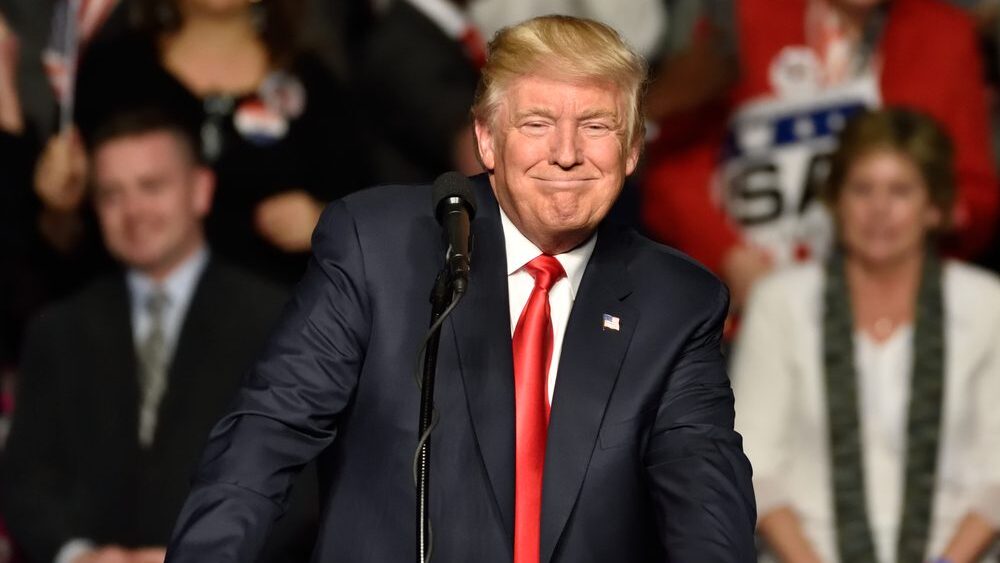
Former U.S. President Donald Trump.
Photo: Evan El-Amin / Shutterstock
Leaders of the European Union expressed disbelief and outrage after Donald Trump’s off-hand remark at a campaign rally in South Carolina in which the former U.S. president alluded to not rushing to defend NATO allies who fail to live up to their defense spending obligations. Perhaps the message was less than diplomatic, but that’s precisely why it will probably have the intended effect.
“One of the presidents of a big country stood up and said, ‘Well, sir, if we don’t pay and we’re attacked by Russia, will you protect us?’” Trump recalled during the rally. “You didn’t pay. You’re delinquent. No, I would not protect you,” he said, then added jokingly: “In fact, I would encourage them to do whatever the hell they want. You gotta pay. You gotta pay your bills.”
You didn’t pay. You’re a delinquent.
— Visegrád 24 (@visegrad24) February 11, 2024
No, I would not protect you. In fact I would encourage (Russia) to do whatever the bell they want.
You gotta pay,”
says Donald Trump, referring to countries that do not spend the NATO target of 2% of GDP on defence. pic.twitter.com/MpbLgLk1K1
There are several things to consider here. One is that Trump was speaking to his own voters, most of whom feel that the U.S. spends way too much on Europe’s security without most European countries even trying to pull their weight. The other is that this was a campaign speech from a man who was elected once before not in spite of, but because of, being outspoken about controversial topics, deliberately using critical media for free publicity.
The one thing Europeans should have finally understood about Trump is to never take him too literally. Of course, that’s especially hard to do when you want to be offended.
“These are the words of a serious candidate for president so they should be treated seriously,” Polish Deputy Foreign Minister Pawel Zalewski said. “He correctly calls on member countries to spend more on defense, but he also calls on Russia to attack. This is completely incomprehensible.”
Other officials also expressed alarm, but most did not even address the problem of defense spending at all.
“Any suggestion that allies will not defend each other undermines all of our security,” NATO Secretary-General Jens Stoltenberg said. “I expect the U.S. to remain a strong and devoted ally of NATO, whoever wins the presidential election.”
European Council President Charles Michel said it was a “reckless” statement that serves “only Putin’s interest,” and used the opportunity to call on the EU to “further develop its strategic autonomy.” Internal Market Commissioner Thierry Breton echoed the same sentiment: “We cannot gamble our security every 4 years. … American democracy is sick.”
Nonetheless, if the remark prompts EU leaders to start spending more on their defense, then perhaps Trump already achieved what he set out to.
Out of 31 NATO members, only 11 surpassed NATO’s 2% defense spending rule last year. Even those who do are almost all in Eastern and Central Europe, and their proximity to Russia makes it a much easier decision to comply. On the other hand, the wealthiest EU countries in Western Europe—including Germany, France, Spain, and Italy—are still limping below 2% of GDP, and almost a third of the alliance below 1.5%.
Ignoring the defense spending obligations on this scale might also compromise collective security, at least as much as “reckless” statements on campaign rallies. But beneath all the faux-outrage, EU leaders know that too.
“It’s important to listen [to Trump],” Stoltenberg said just a few weeks ago, because the ex-president’s statements are “not a criticism of NATO, but of not investing enough in NATO.” The Secretary-General also recalled the strong bipartisan support for NATO in the U.S. and said he was confident that Trump will remain a “staunch ally.”
Speaking this year at Davos, Dutch Prime Minister Mark Rutte was even more candid. “Trump’s main issue [was] that we were not spending enough. And he was right,” Rutte said. “America is about 50% of NATO’s economy, … spending about 70-75% of the NATO budget and the rest of NATO is only doing 25%. So he was completely right in forcing us to live up to the 2% commitment.”
Trump is right! Even @MinPres says so about the NATO contribution of at least 2% #Trump pic.twitter.com/tmNhMDrPIP
— ⚓️ Jack van Woerkom (@Jack_Woerkom) February 11, 2024
When Trump became president in 2016, only four NATO countries managed to surpass 2% in their spending. When he left in 2020, it was ten members but dropped to eight in the very first year of Biden’s presidency. Those who have caught up since don’t owe it to any pressure from the White House either, but to the war, making them realize their vulnerabilities.
Nonetheless, there is a long way to go until all NATO members contribute to collective security—not equally, just according to the rules and commitments they agreed to.
